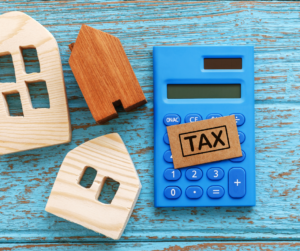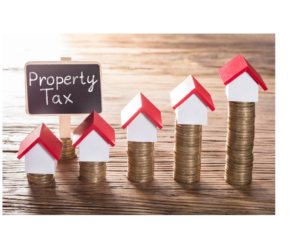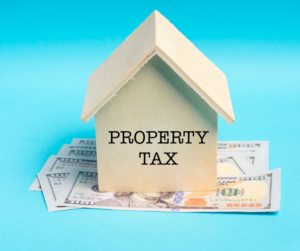Things are done a little differently in Oregon when it comes to property taxes. We have no sales tax, we have no state transfer tax and the property tax stays the same at the time of sale. The sale does not affect your property taxes in Oregon.
We’re gonna talk a little bit about how they are calculated. What the history behind it is and why one property that’s very similar to another may have a very different tax bill. If you’re new to homeownership in Oregon or you’re considering purchasing a home in Oregon this should help your understand a little bit more.
One of the most common questions center around property taxes.
Property taxes are the largest revenue for our local services. Our property taxes fund our schools, our fire departments, our Sheriff, our police departments.
Your tax bill is based on your assessed value and the services provided for your property.

In 1997, Oregonians passed a Ballot Measure number 50. Measure 50 was designed to limit the amount of taxes a homeowner paid. And Measure 50 said that every property would receive an assessed value. So in 1997, we needed to come up with an assessed value. What they did was they went back to 1995 and they took the real market value and
subtracted 10% and that became your assessed value for 1997. If you had $100,000 home in 1995, your assessed value for 1997 was $90,000.
The next part of Ballot Measure 50 said that your assessed value could only go up 3% per year. Okay? Theoretically, one might think that that meant your taxes would only go up 3% per year. Essentially that’s true until a bond or additional funding is requested from one of your service providers and your area votes that in, then of course that will increase your taxes. Although your assessed value will only go up 3%, if voters vote in to pay more money for a service, then you would have a higher tax bill.
On January one, the assessor’s office will place the assessment on all properties. This is important for new construction or when you’re in the middle of for example, a remodel or building a pole barn or a shop or anything like that on your property. Whatever’s on the ground on January one is what you will be assessed for for the coming tax year. If you’re in the middle of a project that year’s taxes may only reflect a portion of that improvement. It’s not uncommon for new construction to take two and sometimes three years to have a full assessment. A full year’s construction or even nine months construction could theoretically take three years to have a full assessment.
Existing Homes Assessed Value

When you purchase an existing home the tax assessed value stays with you, your tax bill will stay the same. There are things you can do as a homeowner that could change your taxes. We’re gonna talk just briefly about what some of those are. Some people think that anytime you have to pull a permit that that’s gonna change your taxes. That’s not the case. For example, some areas require a permit for a roof. If you’re replacing your roof that’s not gonna affect your taxes. The state and the county consider that maintenance. If you’re gonna update your appliances, it does not affect your taxes. If you’re going to update your bathroom, chances are it’s not gonna affect your taxes. Now, if you’re going to do a full blown remodel, that could affect your taxes.
Your Taxes Went Up?
When people see their taxes fluctuating and they think it’s because the county or the state or the city has increased their taxes, that’s not true. What happened is, the voters have agreed to pay more for the building of a new school or 911 needed to update their equipment or the fire department or something like this needed more money and we approved that. Sometimes when you’re purchasing a home knowing what happened during the last election can you know help how much your taxes are gonna go up. For example, in southern Deschutes County this last election, the voters agreed to pay a little more money for the fire district. So our taxes are gonna go up slightly next tax year.
The Tax Year
 Speaking of next tax year, this is where things get kind of crazy. So remember, we talked about the assessor put your assessment on as of what’s on the ground, January 1st? Our tax year goes from July one to June 30th. Now to some people that’s not very wonky because they’re accustom to what’s known as a fiscal year. So whatever was on the ground on January 1, your July 1 tax period will have that assessed value. And it’ll go from July 1st to June 30th. Now here’s where it gets really wonky. Your tax bill does not come out until October. Usually around the 15th of the month. It’s due in November. So when your tax bill is paid in November, you are paying from July 1st to November, and then from November, all the way back around to June 30th. That gets really confusing to people.
Speaking of next tax year, this is where things get kind of crazy. So remember, we talked about the assessor put your assessment on as of what’s on the ground, January 1st? Our tax year goes from July one to June 30th. Now to some people that’s not very wonky because they’re accustom to what’s known as a fiscal year. So whatever was on the ground on January 1, your July 1 tax period will have that assessed value. And it’ll go from July 1st to June 30th. Now here’s where it gets really wonky. Your tax bill does not come out until October. Usually around the 15th of the month. It’s due in November. So when your tax bill is paid in November, you are paying from July 1st to November, and then from November, all the way back around to June 30th. That gets really confusing to people.
Prorating Taxes in a Sale
Now, let’s say you put your house on the market, or you’re a buyer, this goes either way and you write your offer and we’re going to have to do what we call prorate your taxes. So if the seller has paid their taxes for the whole year and we’re selling and closing Escrow, let’s say February 1st. That buyer is going to reimburse the seller for February, March, April, May and June for their taxes. Because the seller’s already paid those taxes but the seller won’t be living in the home, the new buyer will. So even if you’ve paid your taxes, you’re gonna get that money back. And buyers what that can mean is that you’re gonna be paying that as part of your closing costs. And your mortgage company is going to be collecting taxes in your mortgage generally to pay your taxes in full come that October time when that bill comes out. So depending on the time of the year, you might have a little more in closing costs for taxes. It all works out in the wash, but those dates can get really messy for people who don’t understand the system.

